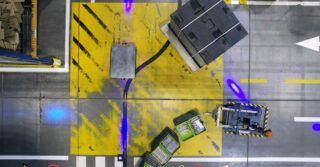The largest projects initiated in Lower Silesia in 2018 alone include the Mercedes-Benz engine factory in Jawor or the Wałbrzych factory of transmissions for Toyota hybrid vehicles. The proximity of a large academic center, several research centers and access to qualified staff mean that today not only traditional body elements and engine systems are produced here, but also modern components for electric cars, an example of which is the new LG lithium-ion battery factory. Chem in Kobierzyce.
This trend is also noticed by Knauf Industries, which launched a new production line for car parts made of modern EPP foam in its plant in Nowa Wieś Wrocławska.
We talk to Janusz Kołucki, director of the Knauf Industries factory in Wrocław, about the opportunities and prospects for the development of the automotive industry in Lower Silesia.
The Knauf Industries Wrocław plant is known for the production of plastic automotive components. What decided about the implementation of the new technology?
It’s true, so far in our plant we have used the technology of pressure injection of thermoplastics, such as PP or ABS, in which we produce, among others posts, elements of bumpers or floors.
We treat the launch of a new production line of pressure-molded parts made of expanded polypropylene EPP as a supplement to our offer, which opens up completely new perspectives. It is a forward-looking material that has many advantages relevant to the current challenges facing the automotive industry.
It is characterized by low weight and high durability, and also very well absorbs shocks, thanks to which it allows you to ensure safety while reducing the weight of the vehicle
All this means that it successfully displaces the heavier and unsuitable for recycling traditional foams. It is perfectly used as a raw material for the production of fillings for seats, headrests and sofas, but also works perfectly as a shock absorbing element in bumpers. We also see a great potential of this material as a raw material for the production of packaging for transport, including due to its high strength, as well as optimal thermal insulation properties. EPP foam is a future-proof material with many advantages that are significant in terms of challenges for the automotive industry.
Are car parts made of EPP foams very popular now?
Definitely yes. We started production in the last quarter of last year, and we are already implementing five projects for large customers, including two types of impact-absorbing inserts for bumpers in passenger cars and tool boxes for trucks of a well-known brand.
Currently, the Knauf Industries Wrocław factory also produces sofas with metal reinforcement for a manufacturer known for its high safety standards. This is quite a complex task, because the frame has to be surrounded by EPP granules in the injection process, and then a cover with a sponge is put on the entire element. We are in talks with representatives of two large automotive concerns, and we are also working on a project for the production of EPP packaging for one of our current clients.
In addition to current orders, we also support foreign Knauf Industries plants. The most recent example is the production for a sister factory in Hungary.
How do you rate the attractiveness of the location in terms of the development of a new project?
In general, Lower Silesia is a very good location, both in terms of logistics and relative proximity to current and potential recipients from the automotive industry. Most of the suppliers of EPP granules needed for the production of our material are located in Germany or the Czech Republic. The well-developed infrastructure of connections means that the supply is smooth, and the short distances reduce the costs of transport. Thanks to this, we can offer our customers a more attractive offer and guarantee high reliability of deliveries. The headquarters of the largest car manufacturers are located nearby, including in Jelcz-Laskowice, Gliwice or the Czech Kvasiny. The proximity of a large research center, such as the Wrocław University of Technology with the Department of Foundry, Plastics and Automation, is also very important.
We provide expert opinions there, but also use the support of educators in training machine operators, which is crucial for maintaining quality standards. The convenience of this location is also confirmed by other large enterprises from the industrial sector – an industrial and production zone has been established and continues to expand in the immediate vicinity of our plant.
Do you already have any further plans to expand your production?
Looking at how many projects and talks we have now, the expansion of our technical and production capabilities is necessary, but it is already happening. For example, we have supplemented our offer with texturing of foamed polypropylene parts in modern technology, which allows for the application of patterns with high accuracy. This allows you to give them a very attractive design without additional treatments, such as foiling or covering with fabric.
This year we plan to launch a second, automated production line with a robot, which will facilitate and speed up the processing of more complex car components. In the coming years, we are also thinking about building a line that allows foiling of EPP foams. We treat last year’s opening of the EPP production line as just the beginning of a new stage. We work intensively and are constantly looking for new production solutions that can add value to our customers.


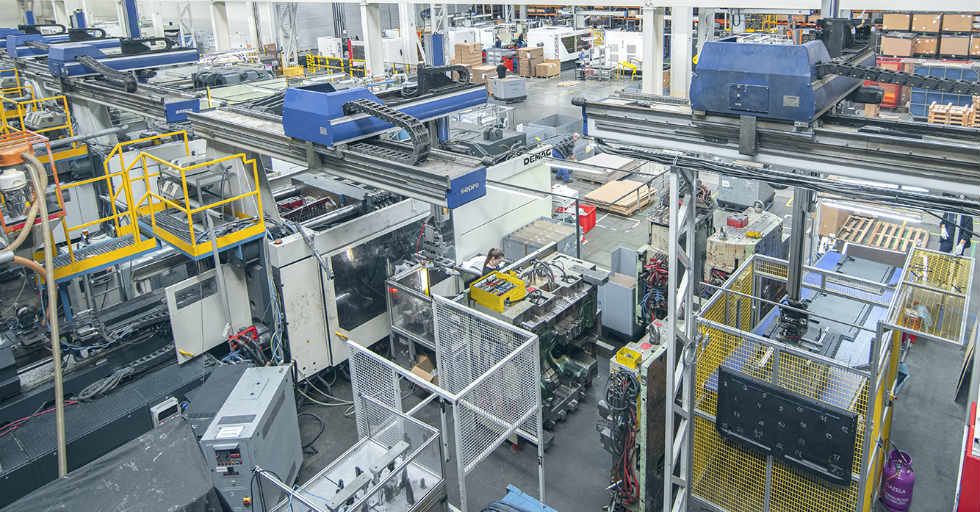
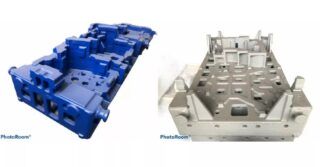
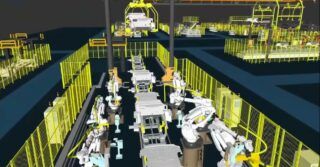
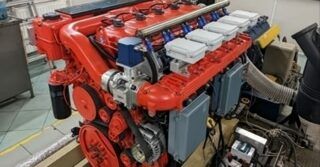

![The importance of artificial intelligence in transport and automotive industry is growing [REPORT] The importance of artificial intelligence in transport and automotive industry is growing [REPORT]](https://industryinsider.eu/wp-content/uploads/xcity-320x167.jpeg.pagespeed.ic.xFkQdk7qXO.jpg)
